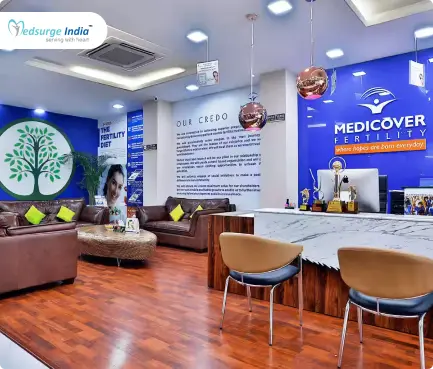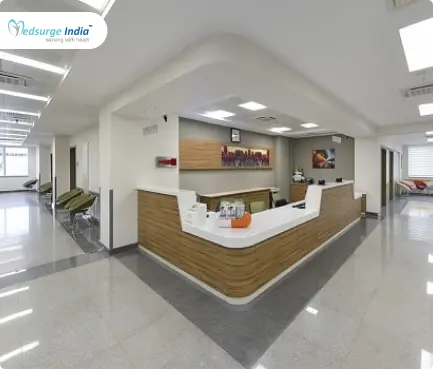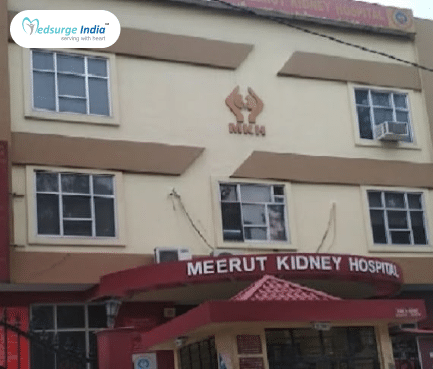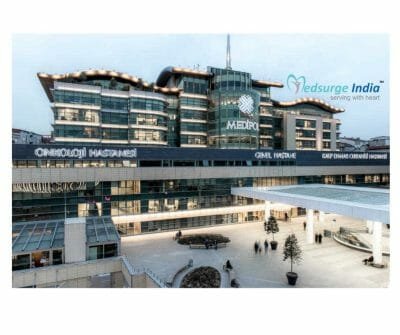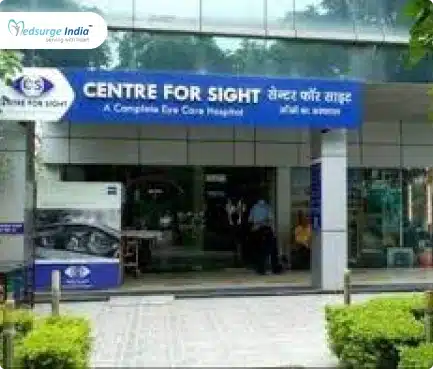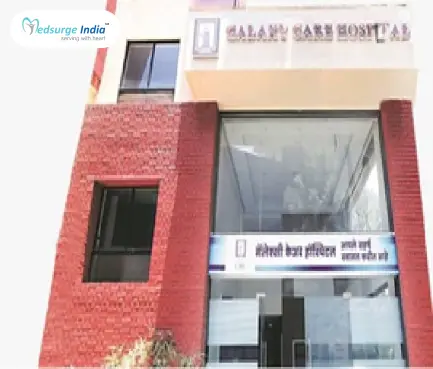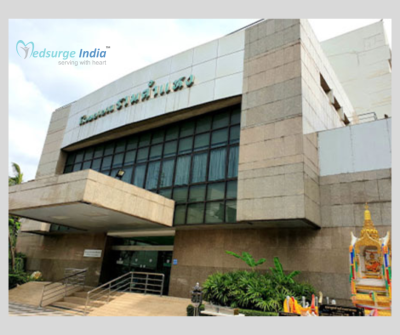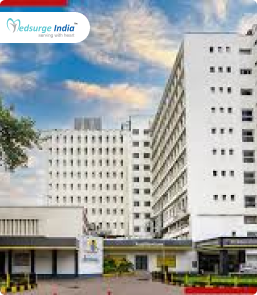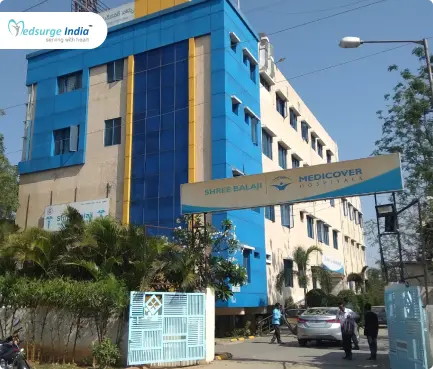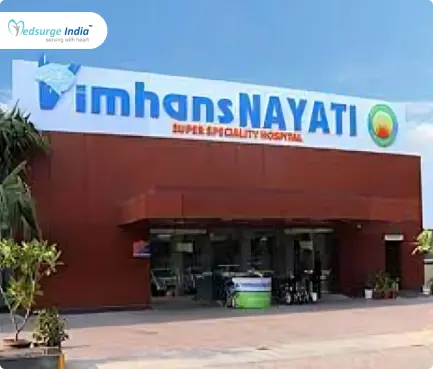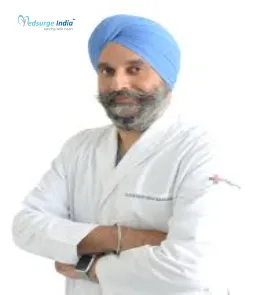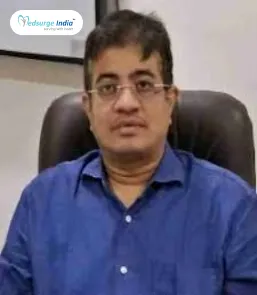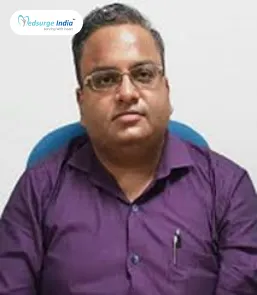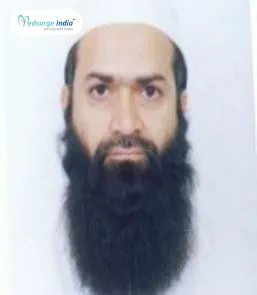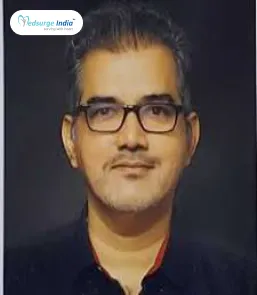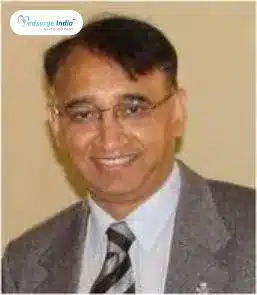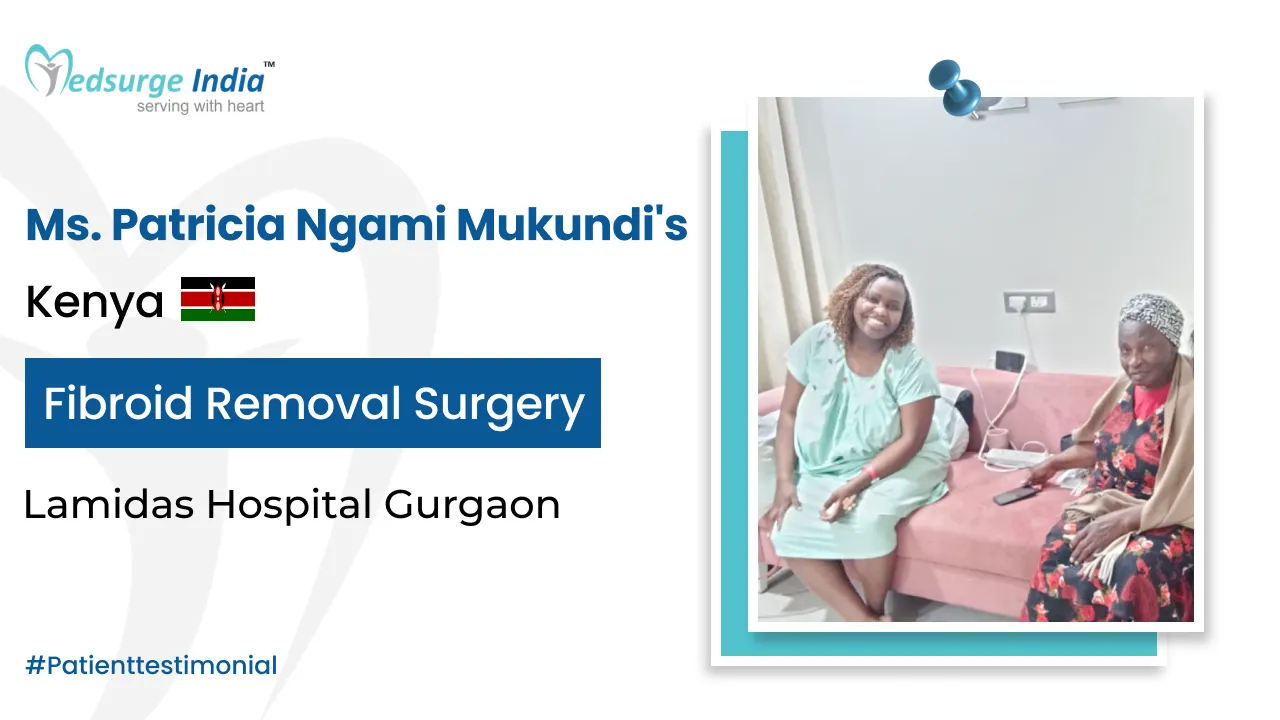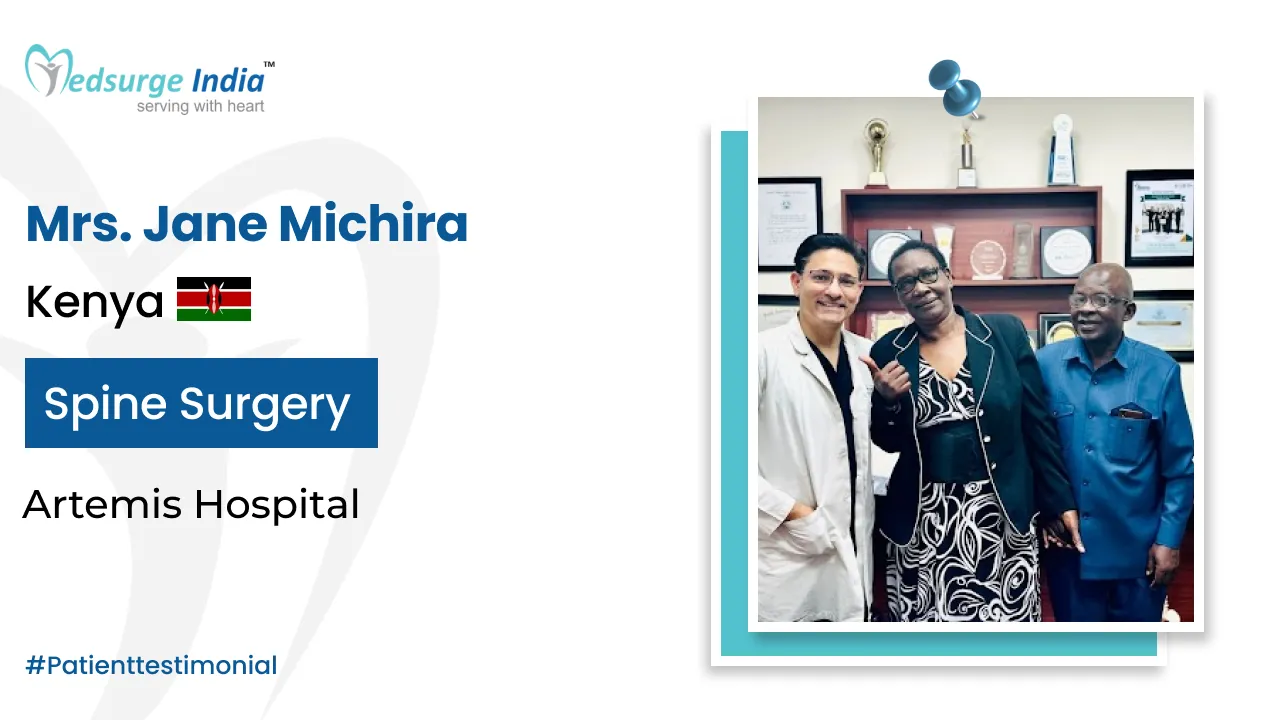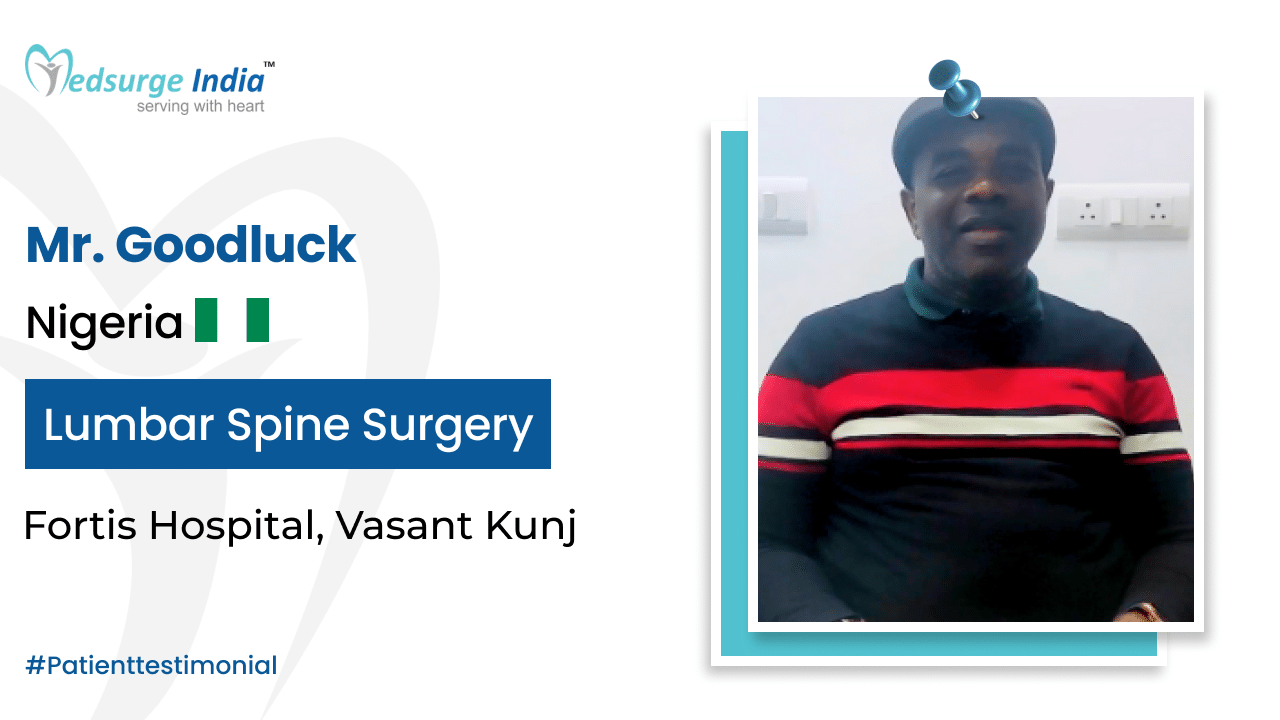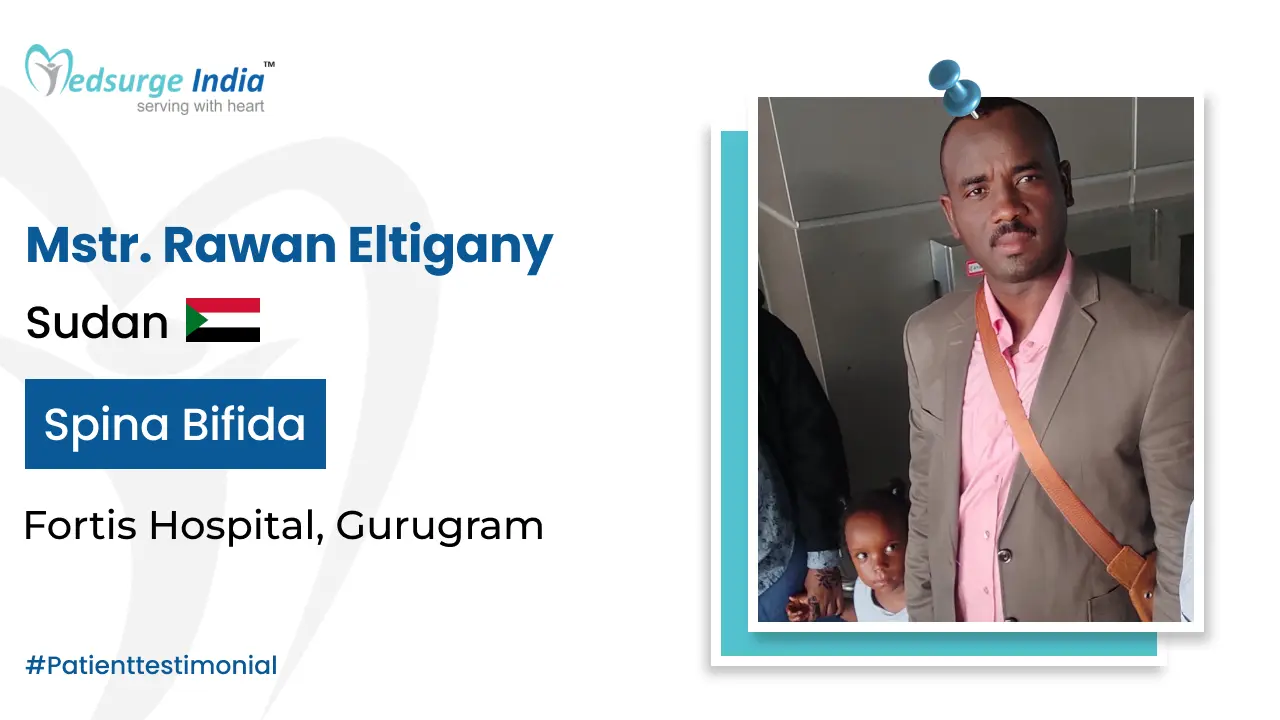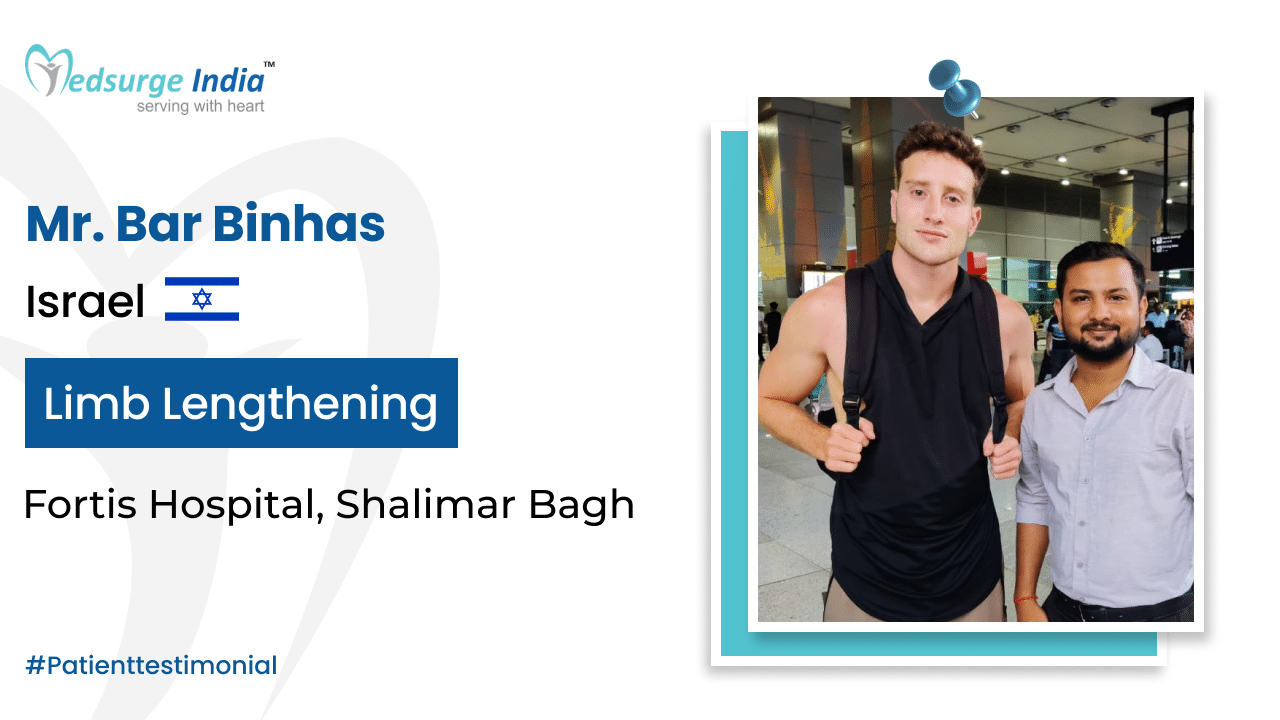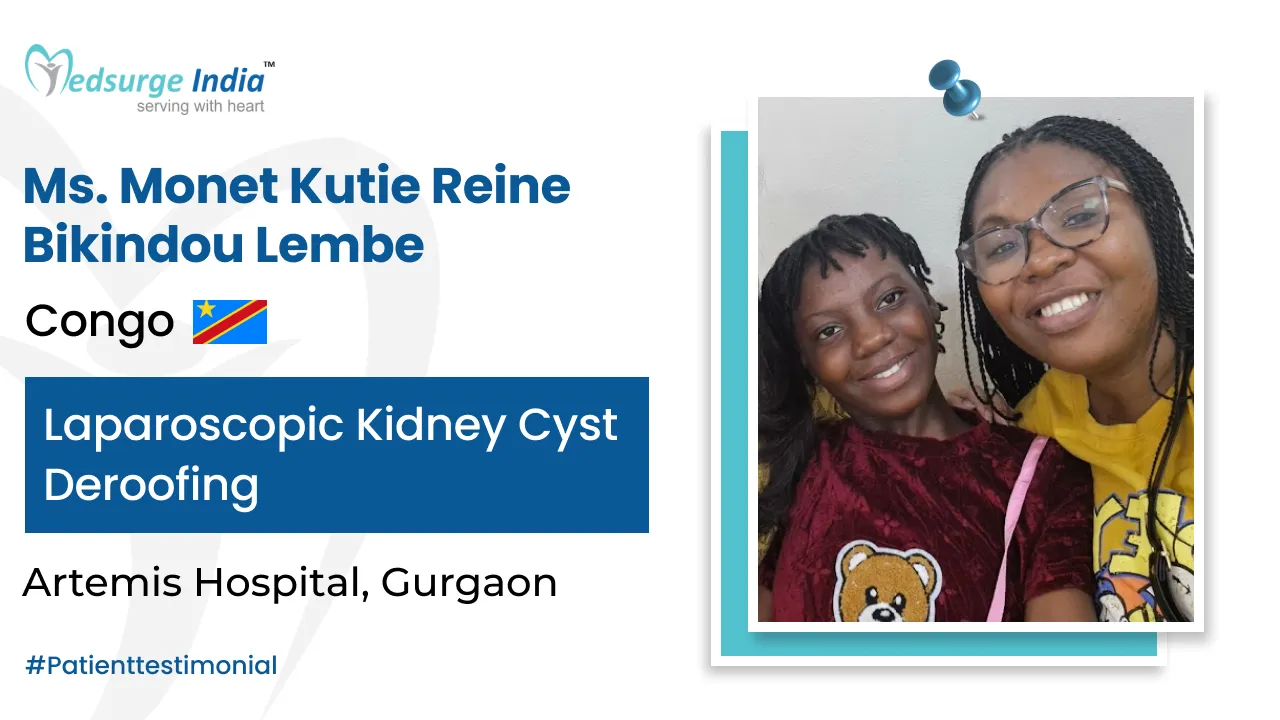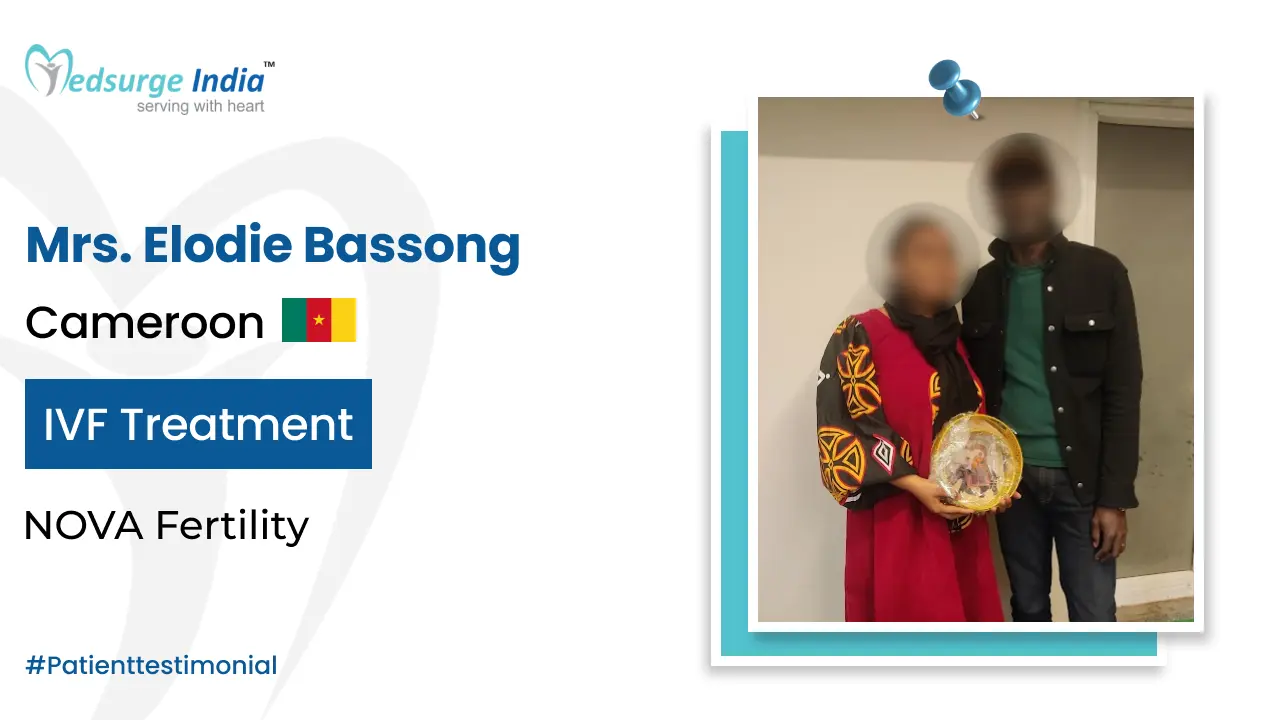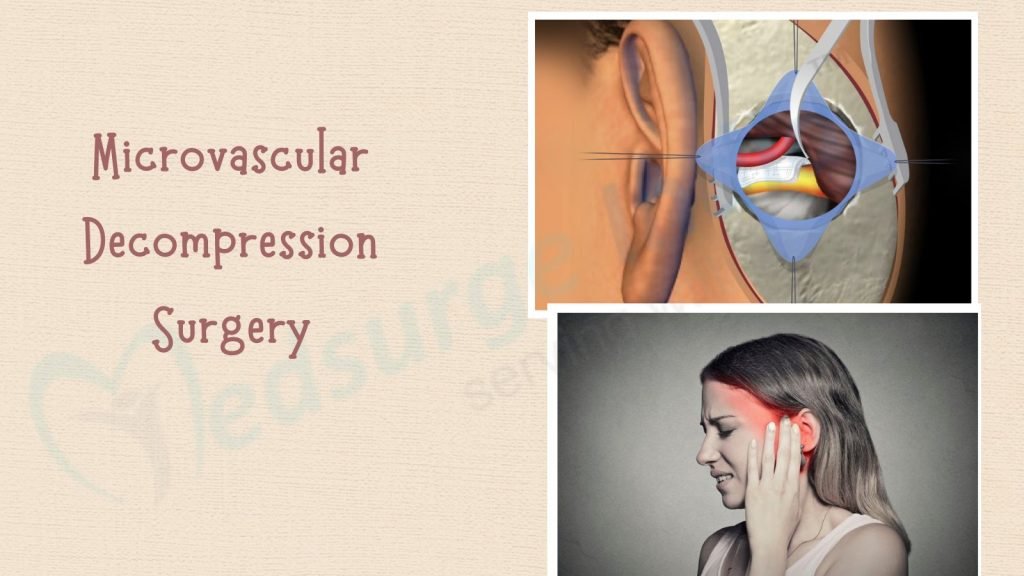
Microvascular decompression (MVD) is a surgical procedure that relieves aberrant cranial nerve compression that causes trigeminal neuralgia, glossopharyngeal neuralgia, or hemifacial spasm. The pain signals are triggered by opening the skull (craniotomy) and putting a sponge between the nerve and the problematic artery. Medications can provide temporary comfort, but when they are no longer effective or create negative effects, MVD is an alternative option. Microvascular Decompression surgery in India is used to reduce pressure from a pulsing vessel pressing against the trigeminal nerve, generating painful facial impulses.
(MVD) Microvascular Decompression Surgery Cost in India is a low costing procedure and the average cost values depend upon the hospitals and surgeon’s experience.
What Is Microvascular Decompression (MVD) Surgery?
Microvascular Decompression (MVD) is a surgical procedure used to treat facial pain or spasms that have failed to respond to other treatments.
Small Teflon sponges are used to protect vital nerves known as cranial nerves in this microsurgical method. Small arteries and veins might irritate these vital nerves by pressing on them in specific situations. A “neurovascular conflict” is a term used to describe this anatomical relationship.
Severe discomfort and unpleasant muscular spasms might result from pressure on one or more nerves. Trigeminal neuralgia, hemifacial spasm, and glossopharyngeal neuralgia are the most common conditions for which MVD is utilized.
Who Is a Good Candidate for MVD Surgery?
If you have any of the following, you may be a good candidate for MVD:
- You have trigeminal neuralgia that is not well controlled with medication, and you want minimal to no facial numbness from alternative therapies such as percutaneous stereotactic radiofrequency rhizotomy (PSR) or glycerol injection.
- Pain in the ophthalmic division of the face or in all three trigeminal divisions.
- Recurrence of facial pain following a previous percutaneous or radiosurgery operation.
- Patients with other medical issues or who are in poor health may not be candidates for MVD because it entails general anesthesia and brain surgery. Multiple sclerosis face pain is not well treated with MVD. MVD may not be appropriate for people who have hearing loss in one ear due to the low risk of hearing loss.
What Are the Sign and Symptoms of Microvascular Decompression Surgery?
One or more of the following signs and symptoms of MVD may appear:
- Mild twinges that last anywhere from a few seconds to many minutes.
- Intense, shooting, jabbing pain that feels like electric shocks
- Sudden pain episodes are induced by normally non-painful stimuli, such as stroking the face, chewing, speaking, or brushing the teeth.
- Discomfort spasms that last anywhere from a few seconds to a few minutes.
- Cluster attacks can persist for days or weeks, but there is usually no pain in between.
- The trigeminal nerve and its branches can cause discomfort everywhere on the face, including the eyes, lips, gums, teeth, jaw, and cheek.
- Pain on the face on either one side or, less frequently, both sides
- Tingling or numbness in the face before pain develops pain that is focused in one location or extends in larger pattern episodes of pain that occur more frequently and intensively over time
- In severe cases, pain attacks might occur hundreds of times every day. Between attacks, some people may go months or years without experiencing any symptoms.
- When certain places on the patient’s face are touched, they can cause pain.
What Are the Causes of MVD Surgery?
Blood vessels pushing on the root of the trigeminal nerve are the main cause of trigeminal neuralgia.
This causes the nerve to send pain signals in the form of stabbing pains. A tumor or multiple sclerosis might potentially put pressure on this nerve (MS). Other causes of MVD surgery may include:
- Multiple Sclerosis
- A tumor presses against the trigeminal nerve
- Physical damage to the nerve
- Family history
What Are the Risks of Microvascular Decompression (MVD) Surgery?
Microvascular decompression surgery (MVD) is an invasive technique that, while safe in the hands of a trained professional, carries the following risks:
- Blooding in wound
- Infection
- Hearing loss, facial numbness, and/or facial weakness (usually temporary, rarely permanent)
- Spinal fluid leak
- Difficulty with speech or swallowing
- Stroke or hemorrhage (very rare)
Microvascular Decompression Surgery Cost in India
On average, Microvascular Decompression Surgery Cost in India starts from USD 5000. The cost of Microvascular Decompression Surgery in India will depend on the type of hospital or the location you choose.
Estimated prices depending on different cities in India
| Cities | Starting Price |
| Delhi | USD 5000 |
| Gurgaon | USD 5000 |
| Noida | USD 5000 |
| Mumbai | USD 5000 |
| Hyderabad | USD 5000 |
| Chennai | USD 5000 |
| Kolkata | USD 5000 |
| Bangalore | USD 5000 |
Note: Do remember that the pricing and the treatment for Microvascular Decompression Surgery cost in India will vary depending on the patient’s choice and other various factors.
Factors That Can Affect Microvascular Decompression Surgery Cost in India
The following here are some variables that can affect Microvascular Decompression Surgery Cost in India:
- Medication costs
- Duration of treatment
- Geographical location
- Hospitalization expenses
- Government policies and subsidies
- Medical tourism packages
- Hospital reputation and infrastructure
- The expertise and experience of medical professionals
- The type and frequency of diagnostic procedures
- The choice of treatment modality
Furthermore, even the standard and grade of medical care and amenities are comparable to those of the most prestigious healthcare facilities in the world, even when the expense of lodging, meals, and transportation is taken out. Also, under the direction of the most skilled physicians, Medsurge India provides patients with the lowest Microvascular Decompression Surgery Cost in India.
How the Diagnosis of Trigeminal Neuralgia Is Done?
Because there is no specific test for trigeminal neuralgia, it is usually diagnosed solely on your symptoms and pain description. If you’ve had face pain attacks, the doctor will inquire about your symptoms, such as how frequently the pain attacks occur.
- Pecial MRI (“MRI protocol for trigeminal neuralgia”)
- Specialized CT scan.
- Hearing examination (audiogram)
- EKG and blood tests
- Monitoring of baseline brain waves (used to monitor nerves at surgery)
- Physical examination and evaluation before surgery
- The updated list of medications for preoperative evaluation.
Helpful :
Top Neurosurgeons in India
Get Free Cost Estimation
Procedure
How Microvascular Decompression (MVD) surgery is performed?
Before MVD Procedure
- Your surgeon will describe the procedure to you, and you can ask any questions or concerns you have.
- You will be asked to sign a consent form giving permission for the surgery to take place.
- Before the surgery, your doctor will do a physical examination to ensure that you are in good health. You may be subjected to blood testing or other diagnostic procedures.
- If you are allergic or sensitive to any drugs, latex, tape, contrast colors, iodine, shellfish, or anesthetic agents, tell your doctor (local and general).
- Tell your doctor about all of your prescriptions (including prescription and over-the-counter) and supplements.
- If you have a history of bleeding disorders or are using any anticoagulant (blood-thinning) drugs, aspirin, or other blood-clotting medications, tell your doctor. You may need to stop using these medications before the surgery.
- If you have a pacemaker or implantable defibrillator, an artificial heart valve, surgical clips for a brain aneurysm, an implanted medicines pump, a chemotherapy port, nerve stimulators, eye or ear implants, stents, coils, or filters, notify your doctor.
- If you are pregnant or suspect being pregnant, tell your surgeon. Prior to the treatment, women of childbearing age may be asked to provide a urine sample for pregnancy testing.
- You may be given a special shampoo to use the night before or the morning of the treatment to wash your hair with.
- You may be given a sedative to help you relax before the treatment.
- Before the treatment, you will be instructed to fast for eight hours, usually after midnight.
During MVD Procedure
- During the procedure, an intravenous (IV) line may be inserted in the hand or arm to provide drugs and/or fluids.
- If there is excess hair covering the surgery site, it may be removed.
- A general anesthetic will be used to put you to sleep.
- A cut (incision) will be made behind your ear on the side of your head where you are experiencing discomfort and numbness.
- For the time being, a small piece of bone will be removed to provide your surgeon access to your brain.
- With the use of an operating microscope, your surgeon will carefully explore the area and isolate the nerve that is causing the pain, which is most typically the Trigeminal nerve.
- After that, the surgeon will place a small Teflon sponge between the nerve and the blood vessel that is believed to be causing the nerve compression and pain.
- The surgeon will restore the bone and close the wound after this treatment is completed.
After MVD Surgery
- You will be brought to the recovery room after surgery, where your vital signs will be monitored as you wake up from anesthesia. After that, you’ll be taken to the intensive care unit (ICU) for overnight observation.
- After surgery, you may feel nausea and headaches, which can be controlled with medicine. When your condition has stabilized, you’ll be moved to a standard room and your activity level will be increased (sitting in a chair, walking).
- You will be released from the hospital and given discharge instructions in 2-3 days.
- Prior to surgery, patients who were using anticonvulsant or pain medication for trigeminal neuralgia will be weaned off the medications on a timetable to reduce the risk of withdrawal and side effects.
Conclusion
Approximately 95% of patients will get immediate pain reduction. All preoperative pain medications must be continued. The physician who started them will gradually reduce them after one month. After 10 to 14 days, staples and sutures are removed. Muffled hearing on the surgical side, facial numbness, anesthetic weariness, and nausea/vomiting in the hospital (meds will be provided) are all common side effects that normally resolve with time. You won’t be able to drive or return to work for roughly a month. For the next six months, no wigs, hair dye, or other harsh products are allowed. These will obstruct long-term recovery and may induce infection, necessitating additional surgery.
Read More – Neurosurgery Cost in India
The Most Important Frequently Asked Questions
Q: How Long Does It Take to Recover from Microvascular Decompression?
A: Your microvascular decompression recovery period may range from two to four weeks, including your hospitalization, with steady progress achieved along the way.
Q: Is Brain Surgery Considered Microvascular Decompression Surgery?
A: General anesthesia is required for MVD. Furthermore, because it is also brain surgery, persons with other medical disorders or who are in bad health, in general, may not be eligible.
Q: How Long Do MVD Surgery Headaches Last?
A: After surgery, this normally goes away in 2-4 weeks. Following surgery, some neck pain and headaches are to be expected. In most situations, these discomforts will subside over the course of a few weeks.
Q: Is MVD a Form of Brain Surgery?
A: Your full health history will be evaluated as you investigate the possibility of undergoing MVD for trigeminal neuralgia. Because MVD is a complex brain operation that requires general anesthesia, your neurosurgeon must first decide whether your overall health warrants this procedure.
Q: Is MVD Surgery Reversible?
A: The findings of this study showed that individuals with persistent or recurrent pain after MVD can still have a good outcome with repeat surgery.
Top Hospitals for Microvascular Decompression Surgery in India
Top Doctors for Neurology And Neurosurgery
Dr. Karanjit Singh Narang
Associate Director
Experience: 16 years of experience
Medanta – The Medicity, Gurgaon
Gurgaon, India
Dr. Rajesh Reddy Chenna
Consultant
Experience: 13 years of experience
Apollo Hospitals, Jubilee Hills Hyderabad
Hyderabad, India
Dr. Venkatesh Yeddula
Consultant
Experience: 21 years of experience
KIMS Sunshine Hospitals, Begumpet
Hyderabad, India
Dr. Sanjeev Dhanuka
Consultant
Experience: 21 years of experience
Millennium Health Care, Salt Lake City, Kolkata
Kolkata, India
Dr. Abhaya Kumar
Head of Department , FRCS, DNB, MBBS
Experience: 16 years of experience
Kokilaben Dhirubhai Ambani Hospital, Mumbai
Mumbai, India
Dr. Prashant Makhija
Consultant
Experience: 20 years of experience
Wockhardt Hospitals, Mumbai Central
Mumbai, India
Dr. Kaushik Sil
Consultant
Experience: 15 years of experience
AMRI Hospital, Kolkata (Mukundapur)
Kolkata, India
Dr. Harjinder Singh Bhatoe
Consultant
Experience: 45 years of experience
Max Super Speciality Hospital, Patparganj, New Delhi
New Delhi, India
Dr. Vishal Peshattiwar
Head of Department
Experience: 22 years of experience
Kokilaben Dhirubhai Ambani Hospital Mumbai
Mumbai, India
Dr. Deepak Varshney
Experience: 16 years of experience
Batra Hospital & Medical Research Centre, New Delhi
New Delhi, India
Dr. Dinesh Rattnani
Senior Consultant , MBBS, MS, MCh
Experience: 12 years of experience
Noida, India
Dr. Jayanti Mani
Consultant
Experience: 19 years of experience
Kokilaben Dhirubhai Ambani Hospital Mumbai
Mumbai, India
Dr. Sudheer Kumar Tyagi
Senior Consultant , MBBS, MS, MBBS
Experience: 21 years of experience
Indraprastha Apollo Hospital, New Delhi
New Delhi, India
Dr. Vinny Sood
Senior Consultant
Experience: 18 years of experience
Max Super Specialty Hospital Gurgaon
Gurgaon, India
Dr. Siddharth Shankar Anand
Consultant
Experience: 21 years of experience
Institute of Neurosciences, Kolkata
Kolkata, India


